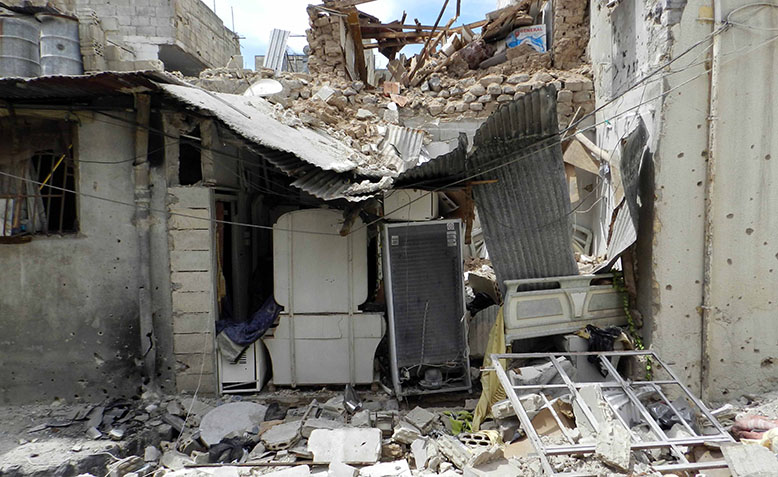 A destroyed building in Syria. Photo: Wikipedia
A destroyed building in Syria. Photo: Wikipedia
The cessation of the Syrian conflict begins with the end of foreign intervention, argues Chris Nineham
The attack on a Red Crescent aid convoy at Urem al-Kubra near Aleppo yesterday was a calamity for those involved in the relief effort and a disaster for the desperate people in the city caught up in the siege. Whether during a ceasefire or otherwise, attacks on relief workers, accidental or deliberate, are amongst the worst atrocities of war and whatever force carried it out this attack must be condemned.
The appalling incident, and its result, the cessation of aid deliveries by the UN, illustrates clearly that the most vital thing for the Syrian people is that the war should end and end quickly. In pursuing that goal we should not accept the view that it was this attack in particular which broke the ceasefire.
In the last 36 hours there have been reports of escalating fighting in many parts of the country. Robert Mardini, Red Cross director for the region reported, for example, that a separate convoy to Talbiseh in Homs Province was forced to lock down overnight in the city ‘due to intensified fighting’. Both the US and its allies and the Syrian army have been briefing about numerous violations of the ceasefire.
As many reports say, it is difficult to determine with any certainty the detail of events on the ground. One thing is for sure, the bombing of Syrian army positions around Deir ez-Zour by western coalition forces, including the US, Britain, Denmark and Australia, which led to the deaths of 60 or more Syrian soldiers, will have been a major blow to the prospects of any ceasefire holding.

